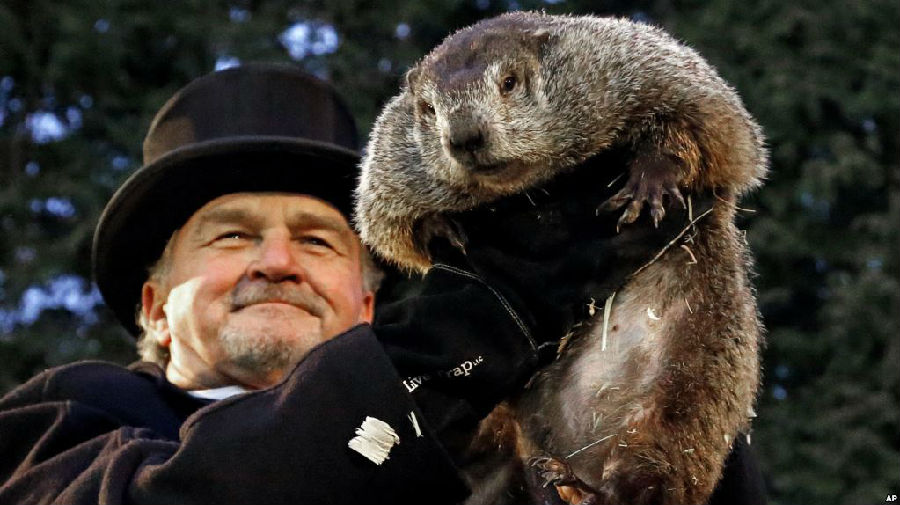(单词翻译:单击)
Every Feb 2, a doughy rodent named Punxsutawney Phil briefly emerges from his winter hibernation to have a look around.
每年2月2日,一只名叫庞克瑟托尼·菲尔的软乎乎的啮齿动物都会从冬眠的洞里探出头来四下看一看。
If he sees his shadow, that means there will be six more weeks of winter.
如果它看到了自己的影子,那就意味着冬天还要持续6周。
If he doesn't, we can assume that warm weather is looming.
如果它没看到自己的影子,我们就可以假定温暖的天气即将来临。
The ritual has been carried out in Punxsutawney, Pennsylvania in the US every year since 1887.
自1887年以来,这项仪式每年都要在美国宾夕法尼亚州的庞克瑟托尼举行。

Relying on Phil is actually not much better than flipping a coin - he's right an estimated 64.4% of the time - but clearly someone at one time believed a groundhog had predictive abilities. Who? And why?
事实上,靠菲尔来预测天气的成功率不比抛硬币高多少--这只土拨鼠预测天气的准确率约为64.4%--但显然有人曾一度认为土拨鼠有预测天气的能力。是谁呢?为什么这么认为?
In 1887, a newspaper editor began circulating the idea that one groundhog in particular, Punxsutawney Phil, was a meteorological wonder.
1887年,一位报社编辑开始传播一个信息:有一只名叫庞克瑟托尼·菲尔的土拨鼠很特别,是预测天气的奇才。
Before long, the entire country became preoccupied with Phil's prognosticating, and an annual tradition was born.
没过多久,整个国家都被菲尔的预测迷住了,一项年度传统就此诞生。


